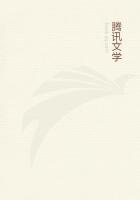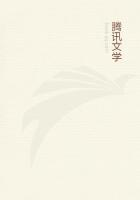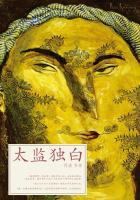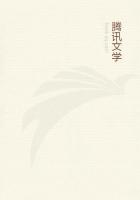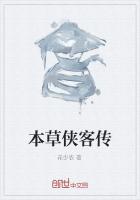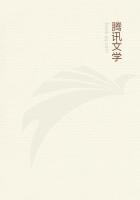What, through all these years, struck me about Tennyson, was that whilst he never deviated into poetical language as such, whether in rhetoric or highly coloured phrase, yet throughout the substance of his talk the same mode of thought, the same imaginative grasp of nature, the same fineness and gentleness in his view of character, the same forbearance and toleration, the aurea mediocritas despised by fools and fanatics, which are stamped on his poetry, were constantly perceptible: whilst in the easy and as it were unsought choiceness, the conscientious and truth-loving precision of his words, the same personal identity revealed itself. What a strange charm lay here, how deeply illuminating the whole character, as in prolonged intercourse it gradually revealed itself! Artist and man, Tennyson was invariably true to himself, or rather, in Wordsworth's phrase, he "moved altogether"; his nature and his poetry being harmonious aspects of the same soul; as botanists tell us that flower and fruit are but transformations of root and stem and leafage. We read how, in mediaeval days, conduits were made to flow with claret.
But this was on great occasions only. Tennyson's fountain always ran wine.
Once more: In Mme. Recamier's salon, I have read, at the time when conversation was yet a fine art in Paris, guests famous for esprit would sit in the twilight round the stove, whilst each in turn let fly some sparkling anecdote or bon-mot, which rose and shone and died out into silence, till the next of the elect pyrotechnists was ready.
Good things of this kind, as I have said, were plentiful in Tennyson's repertory. But what, to pass from the materials to the method of his conversation, eminently marked it was the continuity of the electric current. He spoke, and was silent, and spoke again:
but the circuit was unbroken; there was no effort in taking up the thread, no sense of disjunction. Often I thought, had he never written a line of the poems so dear to us, his conversation alone would have made him the most interesting companion known to me. From this great and gracious student of humanity, what less, indeed, could be expected? And if, as a converser, I were to compare him with Socrates, as figured for us in the dialogues of his great disciple, Ithink that I should have the assent of that eminently valued friend of Tennyson's, whose long labour of love has conferred English citizenship upon Plato.
We have called him shy and sensitive in daily intercourse with strangers, and as to criticism, he freely confessed that a midge of dispraise could sting, while applause gave him little pleasure. Yet no poet altered his verses so much in obedience to censure unjustly or irritatingly stated, yet in essence just. He readily rejected some of his "Juvenilia" on Mr Palgrave's suggestion. The same friend tells how well he took a rather fierce attack on an unpublished piece, when Mr Palgrave "owned that he could not find one good line in it." Very few poets, or even versifiers (fiercer they than poets are), would have continued to show their virgin numbers to a friend so candid, as Tennyson did. Perhaps most of the genus irritabile will grant that spoken criticism, if unfavourable, somehow annoys and stirs opposition in an author; probably because it confirms his own suspicions about his work. Such criticism is almost invariably just.
But Campbell, when Rogers offered a correction, "bounced out of the room, with a 'Hang it! I should like to see the man who would dare to correct me.'"Mr Jowett justly recognised in the life of Tennyson two circumstances which made him other than, but for these, he would have been. He had intended to do with the Arthurian subject what he never did, "in some way or other to have represented in it the great religions of the world. . . . It is a proof of Tennyson's genius that he should have thus early grasped the great historical aspect of religion." His intention was foiled, his early dream was broken, by the death of Arthur Hallam, and by the coldness and contempt with which, at the same period, his early poems were received.
Mr Jowett (who had a firm belief in the "great work") regretted the change of plan as to the Arthurian topic, regretted it the more from his own interest in the History of Religion. But we need not share the regrets. The early plan for the Arthur (which Mr Jowett never saw) has been published, and certainly the scheme could not have been executed on these lines. Moreover, as the Master observed, the work would have been premature in Tennyson's youth, and, indeed, it would still be premature. The comparative science of religious evolution is even now very tentative, and does not yield materials of sufficient stability for an epic, even if such an epic could be forced into the mould of the Arthur legends, a feat perhaps impossible, and certainly undesirable. A truly fantastic allegory must have been the result, and it is fortunate that the poet abandoned the idea in favour of more human themes. Moreover, he recognised very early that his was not a Muse de longue haleine; that he must be "short." We may therefore feel certain that his early sorrow and discouragement were salutary to him as a poet, and as a man. He became more sympathetic, more tender, and was obliged to put forth that stoical self-control, and strenuous courage and endurance, through which alone his poetic career was rendered possible. "He had the susceptibility of a child or a woman," says his friend; "he had also" (it was a strange combination) "the strength of a giant or of a god." Without these qualities he must have broken down between 1833and 1842 into a hypochondriac, or a morose, if majestic, failure.
Poor, obscure, and unhappy, he overcame the world, and passed from darkness into light. The "poetic temperament" in another not gifted with his endurance and persistent strength would have achieved ruin.


